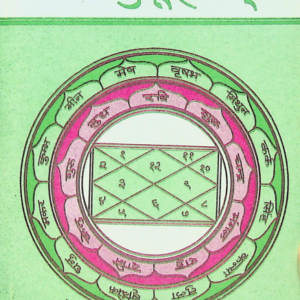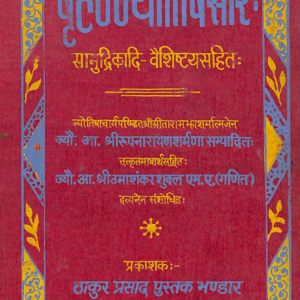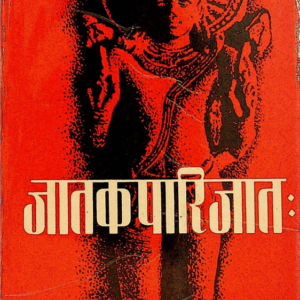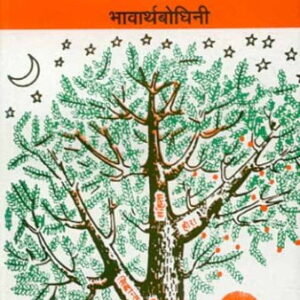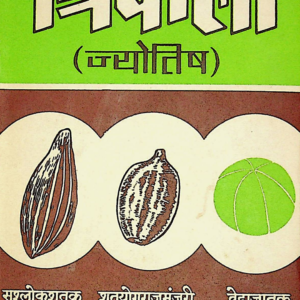Jyotish
Vedic Jyotish, also known as Vedic Astrology or Hindu Astrology, is an ancient system of divination rooted in the Vedas, the oldest scriptures of Hinduism. This comprehensive astrological science encompasses the study of celestial bodies and their influence on human life and natural phenomena. It is considered one of the Vedangas, the six auxiliary disciplines associated with the study and understanding of the Vedas.
Overview of Vedic Jyotish
Historical Background:
- Vedic Jyotish has its origins in the Rigveda, which contains hymns and references to the movement of celestial bodies. The system was further developed in the later Vedic period and reached its classical form in texts like the Vedanga Jyotisha and the Brihat Parashara Hora Shastra.
Key Texts:
- Vedanga Jyotisha: One of the earliest texts on Jyotish, attributed to the sage Lagadha. It focuses on the calendar and timekeeping.
- Brihat Parashara Hora Shastra: Attributed to the sage Parashara, this is one of the most comprehensive texts on Vedic astrology, covering a wide range of astrological principles and techniques.
- Brihat Jataka, Saravali, and Phaladeepika: Other significant classical texts that elaborate on various aspects of Vedic astrology.
Core Concepts and Principles
Grahas (Planets):
- Vedic Jyotish studies the influence of nine primary celestial bodies, known as Navagrahas, which include the Sun (Surya), Moon (Chandra), Mars (Mangal), Mercury (Budh), Jupiter (Guru), Venus (Shukra), Saturn (Shani), and the lunar nodes, Rahu (north node) and Ketu (south node).
Rashis (Zodiac Signs):
- The twelve zodiac signs, or Rashis, are Aries (Mesha), Taurus (Vrishabha), Gemini (Mithuna), Cancer (Karka), Leo (Simha), Virgo (Kanya), Libra (Tula), Scorpio (Vrishchika), Sagittarius (Dhanu), Capricorn (Makara), Aquarius (Kumbha), and Pisces (Meena).
Bhavas (Houses):
- The twelve houses in a horoscope represent different areas of life, such as self, wealth, communication, home, creativity, health, relationships, transformation, wisdom, career, gains, and losses.
Dashas (Planetary Periods):
- The Vimshottari Dasha system is a unique feature of Vedic Jyotish, which outlines the influence of planets over specific periods in a person’s life, helping predict events and trends.
Yogas (Planetary Combinations):
- Special combinations of planets, known as Yogas, can have significant effects on an individual’s life. These can be auspicious (Raja Yogas) or inauspicious (Doshas).
Techniques and Applications
Horoscope Casting (Janma Kundali):
- A natal chart or Janma Kundali is cast based on the exact time, date, and place of birth. It serves as the foundation for astrological analysis, indicating the positions of the planets in the twelve houses and zodiac signs.
Predictions and Remedies:
- Vedic Jyotish provides insights into various aspects of life, including career, health, relationships, and finances. Remedies such as gemstone recommendations, mantras, and rituals are suggested to mitigate negative influences and enhance positive outcomes.
Muhurta (Electional Astrology):
- Muhurta involves selecting auspicious times for significant events, such as marriages, business ventures, and travel, to ensure success and harmony.
Prashna (Horary Astrology):
- Prashna is a branch of Vedic Jyotish that answers specific questions based on the time the question is asked. The chart cast for that moment is analyzed to provide insights and answers.
Significance and Influence
Spiritual and Cultural Role:
- Vedic Jyotish is deeply intertwined with Hindu spirituality and culture. It is used in various religious and social ceremonies, providing a link between the cosmos and human affairs.
Philosophical Insights:
- The principles of Vedic Jyotish reflect the belief in karma and the interconnectedness of the universe. It offers a framework for understanding one’s life path and spiritual evolution.
Contemporary Relevance:
- Despite its ancient origins, Vedic Jyotish remains relevant today, with many people seeking astrological guidance for personal and professional decisions. It continues to be a subject of study and practice, blending tradition with modern insights.
Conclusion
Vedic Jyotish is a profound and intricate system of astrology that has stood the test of time. Its blend of mathematical precision, philosophical depth, and spiritual insight makes it a unique and enduring aspect of Indian heritage. Whether used for personal guidance or as a tool for understanding the cosmos, Vedic Jyotish continues to fascinate and inspire practitioners and enthusiasts worldwide.
Showing all 12 results
Bhava Kutuhalam : भाव कुतूहलम
JyotishHora Shatak : होरा शतक
JyotishJatak Parijat : जातक पारिजात
JyotishJatakalankara : जातकालंकार
JyotishMansagari : मानसागरी
JyotishPhaladeepika : फलदीपिका
JyotishSaravali : सारावली
Jyotish

